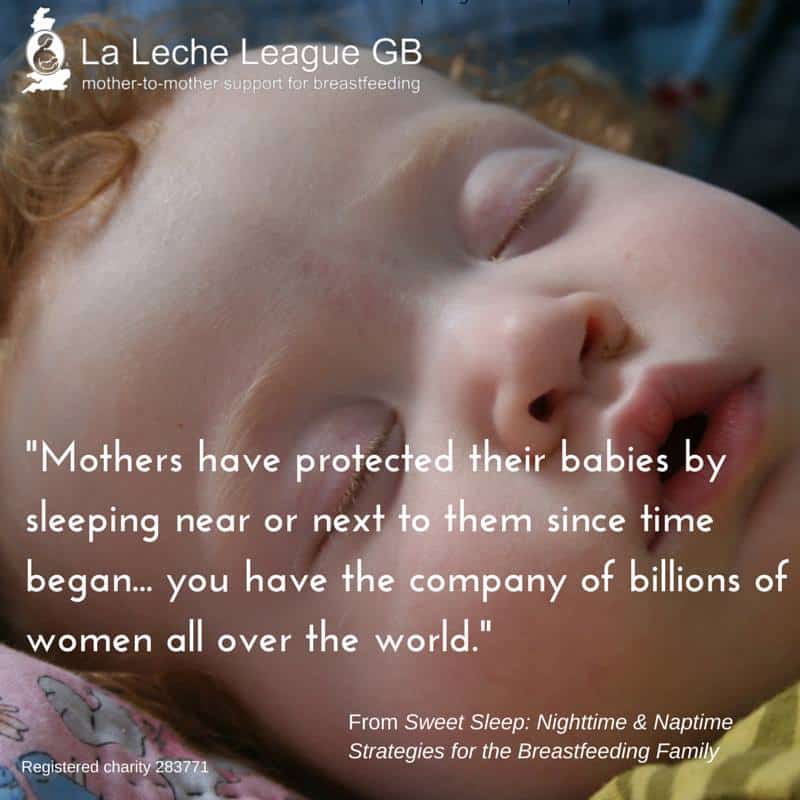Breastfeeding Bed Sharing And Infant Sleep
Breastfeeding bed sharing and infant sleep is a common practice among breastfeeding mothers. Bedsharing has been linked to longer, more restful nights for both mother and baby as it allows them to stay close throughout the night, promoting bonding between mother and child. Breastfeeding while bedsharing can help keep your little one asleep longer since they don’t need to wake up to feed.
It also helps ensure that the baby will continue feeding on schedule due to frequent contact with their mother’s breast. However, safety must be taken into consideration when deciding whether or not this practice is right for you; always make sure that your sleeping environment meets the recommended safe-sleep standards set by health professionals before engaging in any form of co-sleeping arrangement.
Bed sharing and breastfeeding are two concepts that often go hand-in-hand for mothers who choose to breastfeed their babies. This method of infant sleep is becoming increasingly popular as it allows the mother and baby to be close together, facilitating an easier night time feeding routine. Studies have found that bed sharing can help babies to self soothe throughout the night by promoting a secure attachment between the mother and her baby.
However, there are important safety guidelines that should be adhered to when attempting this type of sleep arrangement, such as making sure all pillows and blankets are securely tucked in away from the baby’s face and body.
How Do Babies Die from Bed-Sharing
Babies can die when they share a bed with an adult due to suffocation, entrapment and/or overheating. When an infant is placed in the same bed as an adult or another child, there is a risk of suffocation due to the increased pressure on their abdomen from the weight of other bodies or items on top of them. Additionally, infants may become entrapped between two adults or wedged against furniture in the bed which can lead to death by strangulation or positional asphyxia.
Lastly, babies are at greater risk for overheating when sharing a bed since adults generate more heat than infants do and can cause them to become too hot.
Bed Sharing With Baby Nhs
Bed sharing with baby is a controversial topic, but according to the NHS, it can be done safely under certain conditions. In order for bed sharing to be safe for both parents and babies, the parents must be non-smokers who do not take drugs or alcohol; the mattress should fit snugly in the frame of the bed and have no gaps on either side; all pillows should be kept away from baby; and there should always be someone sober present while bed sharing.
Why Bed-Sharing With Baby is Bad
Bed-sharing with a baby is not recommended due to the risks associated with it. Co-sleeping can increase the risk of Sudden Infant Death Syndrome (SIDS), suffocation, strangulation and entrapment, as well as an increased risk for infant overheating. Additionally, bed-sharing can interfere with breastfeeding by disrupting sleep patterns and increasing nighttime wakings.
For these reasons, it is important to create a safe sleeping environment that separates your baby from you while still allowing them to be close enough so they feel secure and comfortable.
Bed-Sharing Death Statistics
According to the Centers for Disease Control and Prevention (CDC), over 3,700 infants under the age of one died from sleep-related deaths in 2016. Of those, nearly 900 were attributed to bed-sharing or co-sleeping with an adult. Additionally, researches have found that bed-sharing is linked to Sudden Infant Death Syndrome (SIDS) as well as suffocation and strangulation in infants.
Bed-Sharing Baby Death
Bed-sharing baby death is a tragic phenomenon in which an infant dies while sleeping in the same bed as their parent or caregiver. This type of death is preventable and often occurs due to accidental suffocation, strangulation, or entrapment when parents do not follow safe sleep guidelines. To reduce the risk of this happening, parents should always place babies on their backs to sleep in a crib that meets current safety standards.
What Age is Bed-Sharing Safe
Bed-sharing, or co-sleeping, is a practice in which an infant sleeps close to their parents in the same bed. While it has been found to have some potential benefits for both baby and parents, it can also be dangerous if not done safely. In general, experts recommend that children should sleep in their own cribs from infancy until at least 6 months of age before transitioning into co-sleeping with adult supervision and taking proper safety precautions.
After 6 months, bed-sharing may be practiced as long as the infant is healthy and free of any health concerns that could increase their risk of harm while sleeping with adults.
Bed-Sharing With Baby Benefits
Research has shown that bed-sharing with baby can actually have a number of benefits for both the baby and their parents. For example, it can make nighttime breastfeeding easier, reduce stress levels in the household, help babies sleep more soundly and securely, improve bonding between parent and child, and even offer protection against SIDS. Additionally, studies show that bed sharing may lead to better psychological development due to improved mother-child communication during sleep time.

Credit: www.pinkymckay.com
Can Parents Bed Be Shared With Infant Sleeping?
Sharing a bed with an infant can be both comforting and convenient for parents, but it is important to make sure that the safety of the baby is paramount. The American Academy of Pediatrics recommends against sharing a bed with an infant due to risks like suffocation, strangulation, and entrapment. However, if parents choose to share their bed with their baby they should take certain precautions such as making sure there are no loose blankets or pillows near the baby’s face; placing the baby on his or her back in between both parents; never sleeping directly next to your baby’s head; avoiding heavy blankets and fluffy duvets; providing a firm mattress without any gaps around the edges so that your child doesn’t become wedged between them; using breathable sheets and mattresses; not smoking while pregnant or around your child after birth; ensuring that no one else sleeps in the same bed as you and your infant (including other children); removing any pets from being present during sleep time etc.
Ultimately, each parent must decide whether they feel comfortable sharing a bed with their infant based on all available information.
Can I Bedshare If I Breastfeed?
Bedsharing with your baby can be a wonderful experience, especially if you are breastfeeding. Breastfeeding mothers often find it easier to have their baby close at night and some even report that having the baby near them for nighttime feedings makes it easier for them to produce milk. Additionally, bedsharing can also help strengthen the bond between mother and child as well as provide comfort and support during sleep times.
However, before deciding to bedshare, there are some important safety considerations that should be taken into account. If you choose to co-sleep with your infant in an adult bed, make sure the mattress is firm enough so that there’s no risk of suffocation or entrapment due to softness or gaps between mattresses or headboards/footboards. Also ensure that all blankets and pillows are kept away from the face of your little one while sleeping.
It is recommended not to share a bed with anyone else (including pets) who may disturb your small one’s sleep cycle or roll over onto him/her in the night which could lead to accidental suffocation or strangulation hazards. Make sure you place yourself on either side of the baby when feeding her; this will reduce any risks associated with rolling over on top of her while asleep during feeds.
Finally, keep in mind that babies under four months old should never be placed on an adult mattress without appropriate wedges like those available through products such as Baby Bunkers® crib bumpers—these items provide extra cushioning around infants and help prevent accidental death due to SIDS (Sudden Infant Death Syndrome).
Bedsharing is something best discussed with a pediatrician prior making any decisions about it so do consider consulting yours before getting started!
What are the Risk Factors for Bed Sharing Mother And Baby Sleeping Together?
When it comes to bed sharing, the risks can be high for both mother and baby. The American Academy of Pediatrics (AAP) doesn’t recommend co-sleeping with an infant under 12 months old due to potential safety hazards. There are several risk factors that mothers should consider before deciding to share a bed with their child.
These include: having an extremely young or preterm baby; using alcohol, drugs, or medications that make you drowsy; being overweight; sleeping on a couch, armchair, waterbed, air mattress or other soft surface; having pillows around your baby’s head; using too many blankets and covers when sleeping together in the same bed; having a pet in the same room as your baby while they sleep. Bedsharing also poses additional risks if either parent smokes cigarettes—even if neither smoker is in the same room as the infant during nap time—or if there are any other adults present who may not be aware of how fragile babies can be while asleep. All these risk factors should be considered by parents prior to making any decisions about letting their little one sleep in their own beds.
Why Do Babies Sleep Better Bed Sharing?
Bed-sharing has been a long-standing practice in many cultures, and recent research has suggested that there are some benefits to it. One of the most significant is improved sleep for babies who share beds with their parents. This can be attributed to several factors, including increased physical contact between parent and baby, as well as the feeling of safety and security that comes from sleeping close to one’s caregivers.
Studies have found that bed-sharing infants tend to wake less often throughout the night than those who do not bedshare, and when they do awaken they fall back asleep more quickly due to being comforted by their parent or caregiver’s presence. Additionally, babies may benefit from parental cues such as breathing patterns while co-sleeping which can help them learn how to self-soothe and regulate their own sleep cycles over time. Overall, research suggests that bed sharing can promote better quality sleep for both parents and babies alike!
Mom hopes baby’s co-sleeping death warns others
Conclusion
In conclusion, breastfeeding bed sharing and infant sleep is a complex topic that requires understanding of both the benefits and risks involved. It is important to weigh the pros and cons before making any decisions regarding this arrangement for your baby’s sleep. Ultimately, it is up to each parent to make an informed decision based on their own personal preferences, safety concerns, and lifestyle needs.

